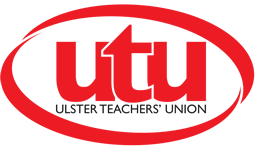Action Short of Strike: Teachers Actions (combined phases 1, 2 and 3) from January 2023.
Members will:
Rigorously comply with the ‘Jordanstown Agreement’ to include:
- Limit total hours worked to 32.4 per week.
- Limit teaching to 25 hours (Primary & Special) and 23.5 (Post Primary) (or pro-rata if Part-Time)
- Outside of teaching hours, complete non-contact Directed Time (outside of the school’s normal pupil learning day) at a time and place of their choosing.
- Do not provide cover (including composite classes) outside the 1987/88 Regulations. (Morning and School bus duties should be seen as Health and Safety issues and are therefore exempt from action). (See at Note 2 below)
- Refuse to accept direction to attend more than one formal school meeting (of no more than one hour duration) per calendar month.
- Refuse to meet with or report to parents on an ad-hoc basis in person, online or by telephone, outside pupil sessions except when fulfilling a teacher’s contractual obligation, or in exceptional circumstances pertaining to legitimate safeguarding and child protection issues.
- Refuse to attend meetings/events held outside of the school’s normal Pupil learning day. (Including open, prize and parents’ evenings) - unless a local arrangement agreed with unions in the school has been reached prior to 1 January 2023.
- Refuse to be directed to undertake unremunerated (new or existing) school duties or activities
- Refuse to be directed to undertake unremunerated (new or existing) extra-curricular voluntary activities (See Note 3 below)
- Do not participate in training or implementing, any work relating to Phase 2 of SEND Implementation and PLPs (until such time as feedback has been published with regard to the workload associated with this area from Phase 1 schools).
- Boycott, or continue to boycott Key-Stage, cross curricular Assessment arrangements.
- Do not submit planners or lessons plans.
- Do not conduct requisition of materials or teaching supplies unless specifically allocated appropriate time within the Directed Time Budget.
- Do not engage in tasks other than those set out in the Directed Time Budget.
- Do not engage in new initiatives
- Do not engage with classroom observation outside of PRSD or EPD.
- Refuse to conduct routine administrative or clerical tasks
- Do not complete any part of the School Development Plan
- Do not co-operate with Governors’ meetings after 5:00pm
- Do not provide lunchtime supervision (without a separate/secondary remunerated contract)
- Do not engage with ETI Inspections
- Do not engage in planning or delivering remote learning, unless included in their Directed Time-Budget
- Do not cooperate with ‘book-scoops’
- Refuse to respond to emails, texts, messages, calls etc. outside working hours. Set limits!
- Do not engage in scribing activities.
- Do not attend employer-led training (except in respect of legitimate safeguarding)
- Do not attend Area Learning Community (ALC) or Pathways into Partnership meetings or activities
- Boycott Consultations (responses or meetings)
Note 1 In general, members should, at both system and school level, take due cognisance of any educational or care plan for the young persons in their charge who have special educational needs and ensure they are not negatively impacted as a consequence of this industrial action.
Note 2 The term ‘cover’ refers to any occasion where the Teacher normally responsible for teaching the class is absent and a teaching colleague is required to teach the class. Cover therefore is included within the teaching limit of 25 hours in any week in a primary school or special school and 23.5 hours in any week in a secondary school, as specified under the 1987 Regulations (Schedule 3, Regulation 5, Paragraph 9).Note 3 Unremunerated and voluntary/extra-curricular activities
- “Unremunerated” duties include any duty which you undertake for which you are not paid the ‘going rate’. This includes duties that do, should or used to, attract remuneration by way of a Teaching Allowance.
- “Voluntary” activities include extra-curricular work with school teams, music/drama productions and clubs. These voluntary activities have always been ‘voluntary’ but in some cases (and within particular school cultures) are often presented as obligatory. Where any activities have been imposed on a member, then the Action (short of strike action) instructions enable members to withdraw with adequate notice from these activities. The withdrawal of voluntary engagement in activities outside of school sessions has always been the prerogative of the volunteering teacher. Members are free to relinquish these duties or activities and any time (preferably with adequate notice). Where members have made a professional judgement and have volunteered freely to provide extra support for certain pupils outside school sessions, these can continue.
Principals' Actions: Principal members
- Boycott data provision (outside Annual census or monthly returns).
- Do not write Annual Board of Governor Reports.
- Do not engage with or enact any process associated with redundancy procedures within schools that are as a direct consequence of budgetary constraints, other than category one redundancies.
- Do not forward Governors Minutes to employers.
- Limit financial plans to one per year only and limit SDP to one year.
- Do not facilitate any school visits by School Development Services (SDS), except for legitimate safeguarding issues or Formal Intervention.
- Boycott engagement with School Improvement Professionals (SIPs).
- Refuse to provide information to employers re: staff participating in lawful industrial action.
Principal members should, at both system and school level, take due cognisance of any educational or care plan for the young persons in their charge who have special educational needs and ensure they are not negatively impacted as a consequence of this industrial action.

